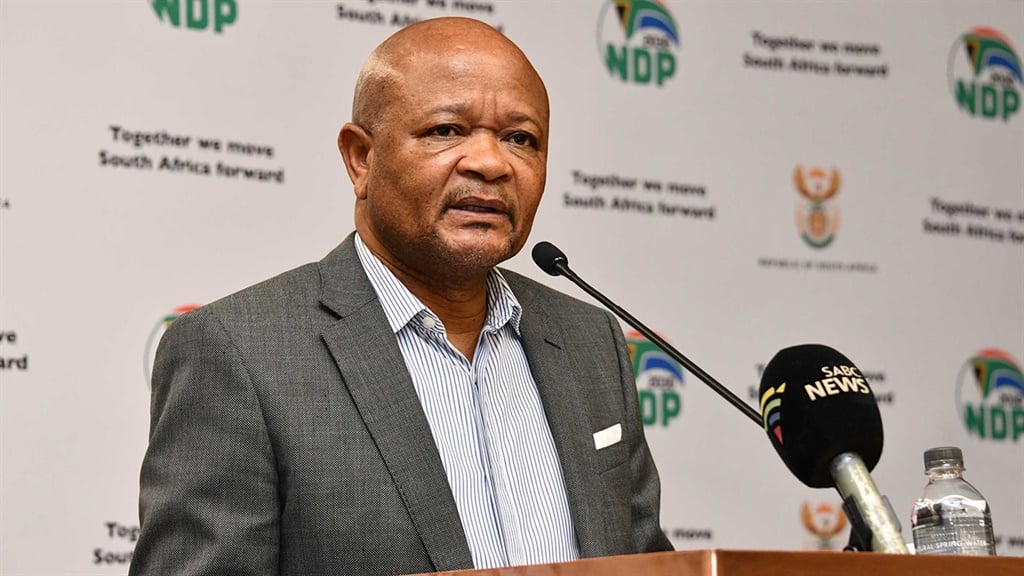


Minister of Public Service and Administration, Senzo Mchunu.
- During his budget speech in February Mboweni proposed a cut to the state’s wage bill by R160.2 billion over three years.
- Mboweni tabled a supplementary budget after the impact of the Covid-19 pandemic rocked the economy and tax revenue prospects.
- Government could not honour its wage increase agreement with public servants in April and the matter is still before arbitration.
Minister of Finance Tito Mboweni told Parliament that the national sphere of government’s share of the division of revenue would increase by R32 billion while the provincial sphere decreases by R4 billion and the local sphere increases by R7 billion.
He was tabling his supplementary budget after the impact of the Covid-19 pandemic rocked the economy and tax revenue prospects. During his budget speech in February Mboweni proposed a cut to the state’s wage bill by R160.2 billion over three years.
The February speech underscored the constraints on financial resources even before the pandemic began. It also underscores that government views local government as critical to the coalface of the response to Covid-19, despite limited financial resources.
In late April, Mboweni said he would table a revised budget to Parliament, which took into account the Covid-19 novel coronavirus pandemic and government’s R500 billion relief package.
“The division of revenue presented in the 2020 Budget is revised as follows: the national share for 2020-21 increases from R758 billion to R790 billion, the provincial share decreases from R649 billion to R645 billion and the local government share increases from R133 billion to R140 billion,” said Mboweni.
- READ | Mchunu mum on public service wage impasse as conciliation continues
Mboweni said a further R9 billion will be reprioritised within allocated conditional grants to fund additional water and sanitation provision and the sanitisation of public transport.
“Municipalities will adjust their budgets to take into account the sharp decline in revenue as a result of the pandemic. We urge communities to hold councils accountable for the spending of COVID-19 funds,” Mboweni said.
Unions immediately pushed back against the budget proposal, clinging to a 2018 public service wage agreement in which government agreed to hike public service wages by CPI plus 1% for general workers and CPI plus 0.5% for workers at a director level from 1 April.
Government could not honour its wage increase agreement with public servants in April and the matter is still before arbitration.
In his February budget, he proposed to cut the state’s wage bill by R160.2 billion over three years. Unions in the public service pushed back against this proposal immediately, calling it tantamount to waging war on public servants.
To complicate the matter even further, April came and went without government honouring a 2018 wage agreement to hike public service wages by CPI plus 1% for general workers and CPI plus 0.5% for workers at a director level from 1 April.
Economist at Efficient Group Dr Francois Stofberg said with considerable adjustments such as a smaller public wage bill, the kinds of spending levels South Africa has had in recent years could be sustained and even justified.
South Africa can be a big winner in the long term future if we spend more effectively efficiently and on the right things, Stofberg said.
The matter is currently before arbitration. The supplementary budget is an opportunity for Mboweni to stand his ground, especially in the contest of the pandemic. National Treasury has advised that the supplementary budget will come with spending adjustments for all spheres of government.

